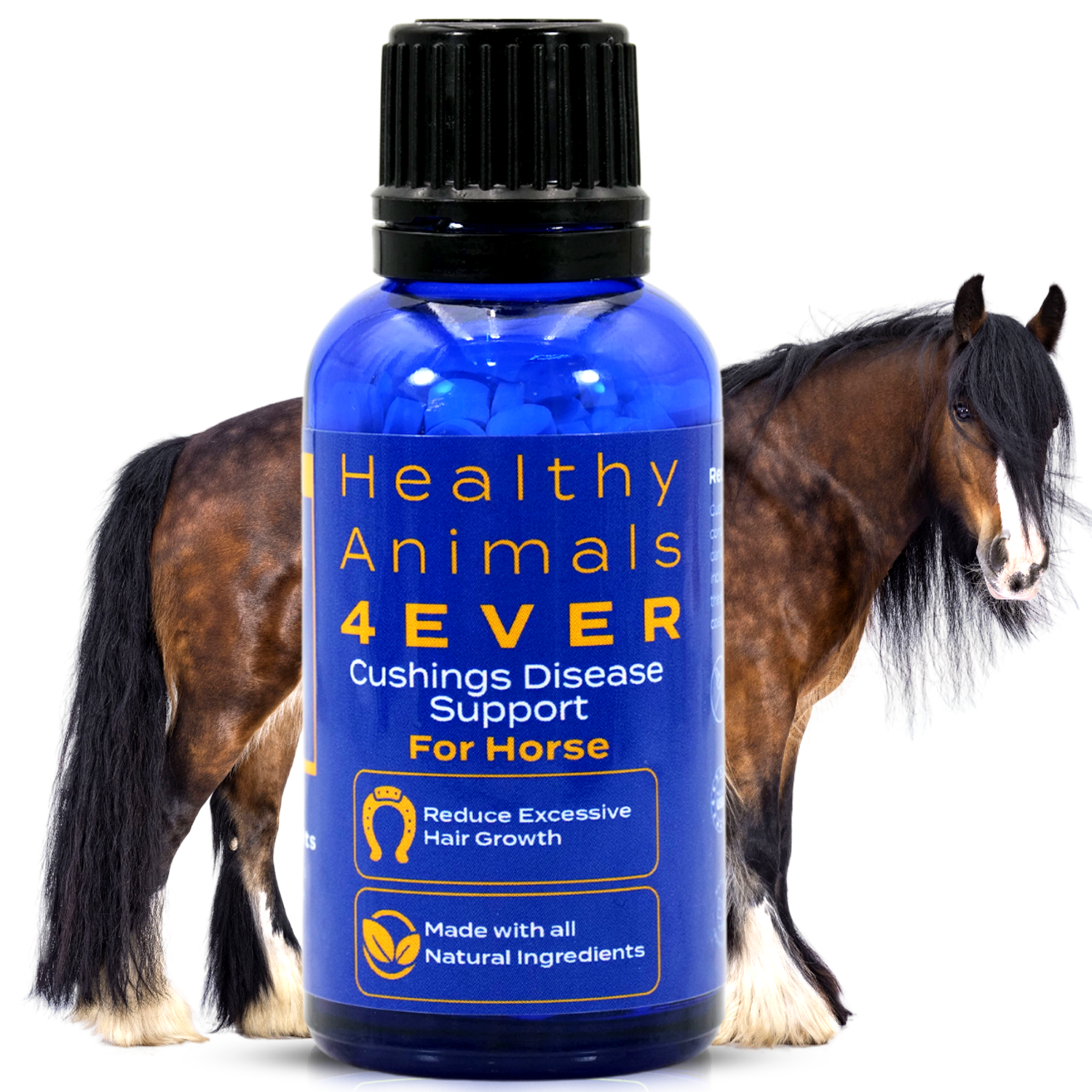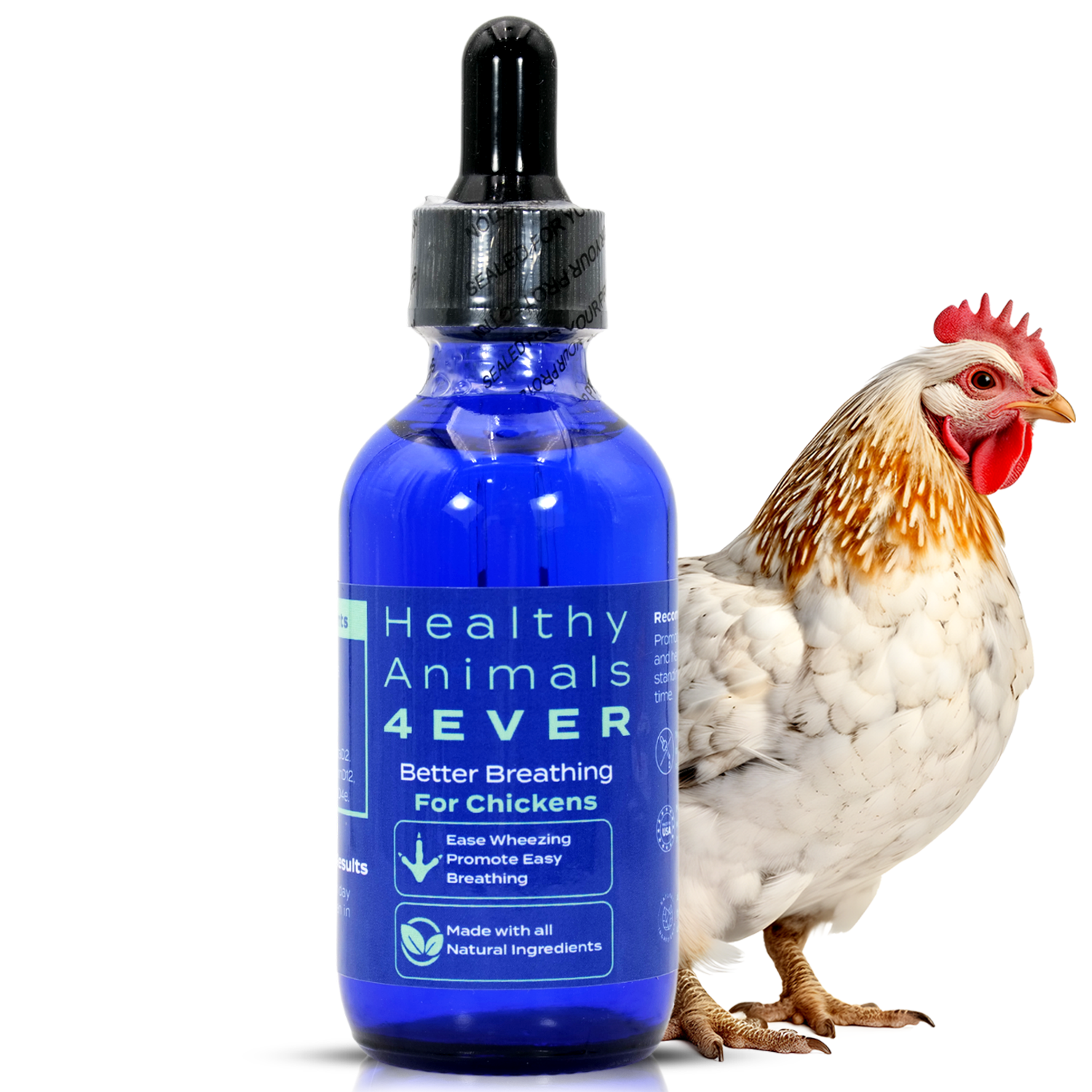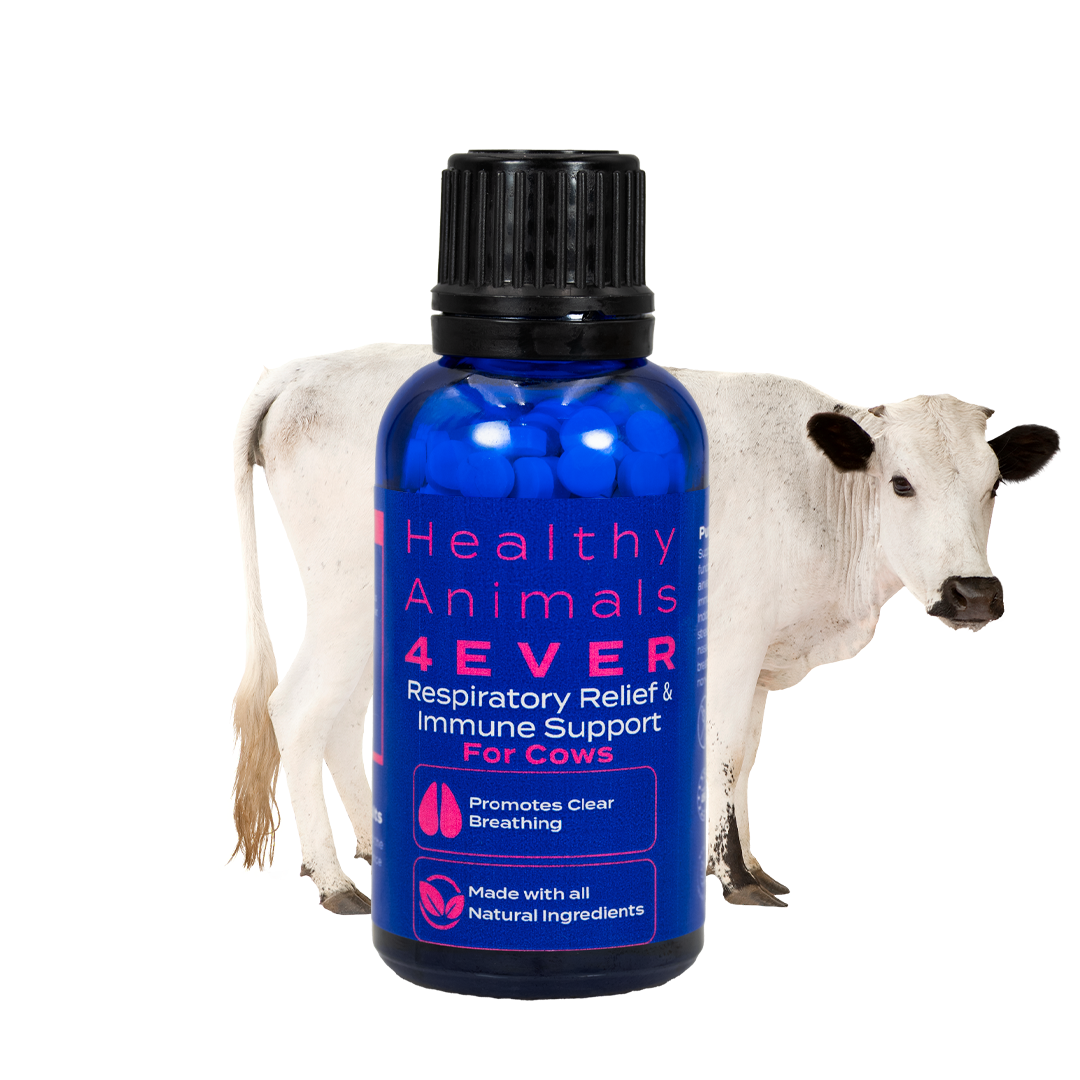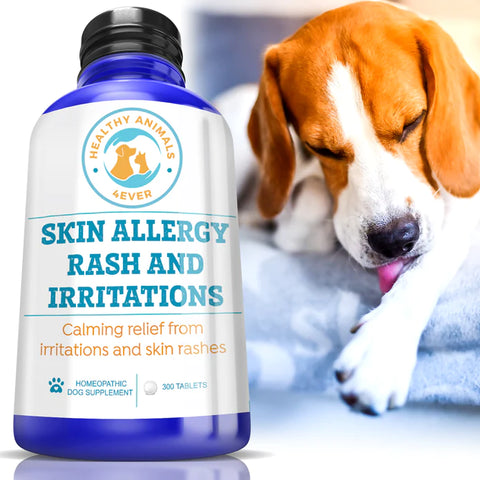Natural Remedies: Exploring Herbal Solutions & Homeopathy for Common Pet Ailments
Have you ever wondered about the fascinating world of herbs and their incredible impact on our pets' well-being?
If you're like us, your pets are more than just animals – they're part of the family. Taking care of them is essential, so, sometimes, we must explore different ways to keep them in good health.
Herbs have been trusted for generations to gently support various health concerns. Whether it's soothing an upset stomach, easing joint discomfort, or promoting a calm demeanor, herbs offer a natural and holistic approach to pet wellness. Homeopathic remedies are also a great way to alleviate these common health concerns, ensuring your pets are healthy and happy.
More Energy is a natural energy-booster remedy for all dogs. It provides multi-mineral support to promote healing, repair cells, and boost metabolic function. Plus, it helps older dogs cope with weakness, fatigue, and other health problems associated.
1. Common Pet Ailments
Let's identify and understand some common health issues that our furry friends might encounter and explore their symptoms and possible causes.
- Digestive issues
Digestive issues in pets often manifest as upset stomachs, vomiting, diarrhea, or constipation. These problems can stem from various causes, including dietary changes, allergies, infections, or simply eating something they shouldn't have.
- Symptoms: Look out for changes in appetite, vomiting, loose stools, or difficulty passing stool. Lethargy and abdominal discomfort may also be indicators.
- Causes: Dietary indiscretion (eating something inappropriate), abrupt food changes, allergies, infections, or underlying gastrointestinal conditions.

- Skin problems
Skin problems in pets can range from mild irritations to chronic conditions. These may include itching, redness, hot spots, or even hair loss. Allergies, parasites, and underlying health issues can contribute to skin woes.
- Symptoms: Excessive scratching, red or inflamed skin, scabs, hair loss, or changes in coat texture.
- Causes: Allergies (food or environmental), fleas or other parasites, fungal or bacterial infections, and hormonal imbalances.
- Anxiety
Pets, just like us, can experience anxiety. This could be due to changes in routine, new environments, or separation from their owners. Anxiety in pets may manifest as excessive barking, destructive behavior, or withdrawal.
- Symptoms: Excessive vocalization, trembling, pacing, destructive behavior, or changes in eating habits.
- Causes: Changes in environment, separation from owners, loud noises (thunderstorms, fireworks), or past traumatic experiences.

- Joint Issues
Joint problems, such as arthritis, are common in aging pets. These conditions can cause pain, stiffness, and decreased overall mobility. Younger pets may also experience joint issues due to genetic factors or injuries.
- Symptoms: Difficulty getting up or lying down, reluctance to climb stairs or jump, limping, or stiffness, especially after rest.
- Causes: Aging, genetics, obesity, injuries, or developmental issues.
Understanding these common health issues is crucial for us pet owners. Early detection and proper care can significantly impact your pet's overall well-being. Keep reading as we explore herbal remedies to address these specific concerns to provide our furry friends the comfort and care they deserve.
2. Herbal Remedies for Pets
Herbal remedies for pets involve using natural plants and their extracts to support the health and well-being of your furry friends.
Herbs and natural remedies are like Mother Nature's medicine cabinet, packed with goodies that can help address various pet-related concerns. Like humans, pets can face different challenges, such as digestive problems, anxiety, skin issues, and joint issues.
Herbal remedies offer an alternative to traditional medications. They use the healing properties found in herbs to support your pet's health.
2.1. Herbs for Digestive Health
Let's take a walk through the herbal garden and see what nature has to offer for our pet's digestive well-being.
1. Chamomile:
Chamomile isn't just for tea; it can soothe your pet's upset stomach. Its anti-inflammatory properties ease digestive discomfort, making it great for calming your pet's tummy.
Remedy: Brew a mild chamomile tea, let it cool, and add a teaspoon to your pet's water or food.
2. Peppermint:
The refreshing scent of peppermint can be a digestive hero for pets. It can help relax the gastrointestinal tract muscles, aiding digestion and soothing an upset stomach.
Remedy: Crush some fresh peppermint leaves and sprinkle them on your pet's food. Just make sure it's in moderation.
3. Ginger:
This spice can be a game-changer for digestive issues; ginger has anti-nausea properties and can help reduce inflammation, making it an excellent remedy for upset stomachs.
Remedy: Grate a small amount of fresh ginger and mix it into your pet's food. It adds a zing and helps their tummy settle.
4. Pumpkin:
It's not exactly an herb, but pumpkin deserves to be mentioned for its digestive benefits. It's a fiber-rich food that can regulate bowel movements, helping with both constipation and diarrhea.
Remedy: Mix a spoonful of plain, canned pumpkin (not the pie filling) into your pet's food. It's like a tasty treat with added digestive perks.
5. Fennel:
Fennel is great for our pets. It can be a digestive aid, helping reduce gas and bloating, making it a good choice for pets prone to stomach discomfort.
Remedy: Crush some fennel seeds and sprinkle a pinch onto your pet's food. It's a subtle flavor addition with digestive benefits.
These herbal remedies can be great for your pet's tummy troubles, offering natural relief and promoting overall digestive well-being.
Remember, introducing new things to your pet's diet should be done gradually, and it's always a good idea to check with your vet, especially if your pet has underlying health issues.
All Digestive is a natural digestive support for cats. Helps with stomach upset, diarrhea, and gastritis. It aids in restoring digestive balance and your pet's comfort. All-natural formula. Easy to use.
2.2. Herbal Solutions for Skin Conditions
Let's examine some common skin problems our pets might face, such as itching, hot spots, and allergies.
Itching:
Sometimes, our pets can't stop scratching due to allergies, fleas, or dry skin. Regular grooming can help brush your pet's fur to remove loose hair and prevent mats.
Hot Spots:
Hot spots are itchy and irritated areas your pet can't resist licking or scratching. They can pop up due to allergies, infections, or even boredom. Try to keep the area clean and dry.
Allergies:
Our pets can also have allergies. They might be related to certain foods, pollen, or materials they come into contact with. Identifying the allergy source is key.

Now, let's explore some herbs that can work wonders on our pets' skin and potentially relieve these common issues.
1. Calendula:
Calendula is excellent for our pets irritated skin. It has anti-inflammatory properties that can soothe and promote healing.
Use: Create a calendula-infused oil by steeping dried calendula flowers in a carrier oil (like olive or coconut). Apply a small amount to affected areas.
2. Chamomile:
Chamomile has great skin-soothing properties. It can ease itching, reduce inflammation, and help with allergies.
Use: Make a chamomile tea, let it cool, and then apply it to your pet's skin using a soft cloth or cotton ball.
3. Aloe Vera:
Aloe vera is excellent for our furry friends. It cools and soothes irritated skin, making it ideal for hot spots.
Use: Apply pure aloe vera gel (without additives) to the affected area.
4. Lavender:
Lavender isn't just for a relaxing scent – it has antibacterial and anti-inflammatory properties that can help with skin irritations.
Use: Dilute a few drops of lavender essential oil in a carrier oil and apply it to your pet's skin. Be sure to use it sparingly and avoid sensitive areas.
5. Nettle:
Nettle is like a natural antihistamine, making it a go-to for allergies. It can help alleviate itching and reduce inflammation.
Use: Make a nettle tea, let it cool, and apply it to your pet's skin. Alternatively, you can find nettle-based shampoos for a soothing bath.
These herbal solutions can be a fantastic addition to your pet care routine, providing relief and comfort for their skin.
Skin Allergy Rash and Irritation is a natural allergy remedy for all dogs. Helps heal irritated & infected skin. It may provide relief from insect bites. Provides a calming effect. All-natural formula. Easy to use.
2.3. Herbs for Managing Anxiety
Let's explore some herbs that can work wonders in helping to alleviate anxiety and stress in our pets. Here are 5 calming herbs and their potential benefits:
1. Chamomile:Chamomile also has calming properties that can help soothe an anxious pet. It contains compounds that act as mild sedatives. It can help reduce stress and anxiety and even promote better sleep for your pet.
Use: You can make chamomile tea and add a small amount to your pet's water or mix it with their food.
2. Valerian Root:Valerian root has been used for centuries to promote relaxation in both humans and pets. It can help calm nerves and reduce anxiety.
Valerian root is beneficial for pets who experience stress due to loud noises or changes in routine.
Use: Valerian root can be found in supplement form or as a tincture. Follow the recommended dosage for your pet's size.
3. Lemon Balm:Lemon balm is a member of the mint family known for its calming effects. It has mild sedative properties that can help reduce stress.
Lemon balm can be beneficial for pets dealing with nervousness or hyperactivity.
Use: You can make a lemon balm tea and add a small amount to your pet's water or mix it with their food.
4. Passionflower:Passionflower is another herb with natural calming properties. It can help relax muscles and ease anxiety.
Passionflower is often used to soothe pets dealing with separation anxiety or stress during travel.
Use: Passionflower supplements or tinctures are available, and the dosage should be according to your pet's size.
5. Lavender:Lavender has calming effects. The aroma of lavender can help reduce stress and promote relaxation.
Lavender can be helpful for pets experiencing anxiety in various situations.
Use: You can use lavender essential oil in a diffuser or dilute it in a carrier oil and apply a small amount to your pet's collar or bedding.
These calming herbs can be a natural way to help your pet manage stress and anxiety, providing them with a sense of tranquility and well-being.
Anxiety and Over-Reaction from Fear is a natural remedy for calmness and reduced fear in cats. It helps minimize stress and fear responses. Useful for generalized, separation, social, and environmental anxiety. All-natural formula. Non-drowsy relief. Easy to use.
2.4. Herbs for Joint Health Support
Let's explore some herbal remedies that can help promote joint health and alleviate arthritis symptoms in our pets. These remedies may also support mobility in aging pets as this is crucial for their overall well-being.
1. Boswellia:Boswellia, also known as Indian frankincense, has anti-inflammatory properties that can benefit aging pets with mobility issues.
Usage: Consider Boswellia supplements for your pet. These can help reduce inflammation in the joints and promote better mobility.
2. Turmeric:Turmeric, with its active compound curcumin, has anti-inflammatory and antioxidant properties that support joint health.
Usage: Add a small amount of turmeric powder to your pet's food. You can also explore turmeric supplements formulated for pets.
3. Devil's Claw:Devil's Claw is an herb known for its anti-inflammatory properties, making it helpful for pets experiencing discomfort in their joints.
Usage: Devil's Claw supplements are available. They can contribute to reducing joint pain and improving mobility.
4. Fish Oil:Fish oil, rich in omega-3 fatty acids, promotes joint lubrication and reduces inflammation in aging pets.
Usage: Add fish oil supplements to your pet's diet. This can be in liquid form or as capsules.
5. Ginger:Ginger has anti-inflammatory properties and can alleviate joint pain and stiffness, supporting your aging pet's mobility.
Usage: Add a small amount of fresh grated ginger to your pet's food. Alternatively, explore ginger supplements designed for pets.
6. Nettle:Nettle has anti-inflammatory properties and can help manage arthritis symptoms. This herb may help reduce pain and inflammation associated with arthritis, promoting better joint function.
Usage: You can make nettle tea and add a small amount to your pet's food. Nettle supplements are also available.
These herbs can complement your efforts to enhance your aging pet's mobility, promote joint health, and alleviate arthritis symptoms.
Hip, Joint and Back Pain Relief is a natural hip, joint, and back pain remedy for all dogs. Helpful for dogs with arthritis. Useful as an anti-inflammatory. All-natural formula. Safe and easy to use.
2.5. Herbs for Respiratory Health
Respiratory health is vital for our pets, and certain herbs can offer support in maintaining healthy lungs and airways and help with conditions like coughing or respiratory infections:
1. Licorice Root:Licorice root has anti-inflammatory and soothing properties, making it beneficial for respiratory health in our pets.
Usage: Licorice root can be used in tincture or supplement form. It helps soothe irritated airways and may ease coughing.
2. Thyme:Thyme is known for its antimicrobial properties, which can help address respiratory infections in our pets.
Usage: You can make thyme tea (after cooling) and add a small amount to your pet's water or mix it with their food.
3. Echinacea:Echinacea is an immune-boosting herb that can help our pets fight off respiratory infections and support overall respiratory health.
Usage: Echinacea supplements or tinctures are available. It's often used as a preventive measure during respiratory challenges.
4. Mullein:Mullein is known for its ability to soothe irritated respiratory passages and reduce coughing.
Usage: Mullein tea can be prepared and added to your pet's water. Additionally, there are mullein supplements formulated for pets.
5. Oregano:Oregano has antimicrobial properties that can aid in combating respiratory infections in pets.
Usage: Oregano oil (in small amounts) can be added to your pet's food. Make sure it's appropriately diluted.
These herbal remedies can be part of a holistic approach to support your pet's respiratory health.
Remember, always introduce new herbs gradually and monitor your pet for any adverse reactions.
Better Breathing Respiratory Support Provides lung support for cats. Helpful in fighting the infection to stop coughing at its source. Useful in cases of asthma and other breathing difficulties. All-natural formula. Non-drowsy relief. Easy to use.
3. Homeopathic Solutions
Homeopathic pet remedies use highly diluted substances to stimulate the body's natural healing processes. These remedies are based on the principle of "like cures like," meaning a substance that causes symptoms in a healthy pet can help treat similar symptoms in a sick pet.
Homeopathic remedies aim to address the underlying causes of symptoms rather than merely alleviating them, promoting your pet’s overall well-being. Many pet owners find homeopathic treatments helpful for various conditions, including behavioral issues, skin problems, digestive troubles, and joint pain.
If you want to improve your pet's health gently and safely with homeopathy, check out our catalog here.

The Bottom Line
Herbs and homeopathy can be valuable allies in the well-being of our pets. These natural remedies, derived from the Earth's richness, greatly help promote health. From soothing aching joints to calming anxious minds, herbs provide a holistic approach that supports the proper function of your pet’s body.
Ready to explore this path of well-being together?














